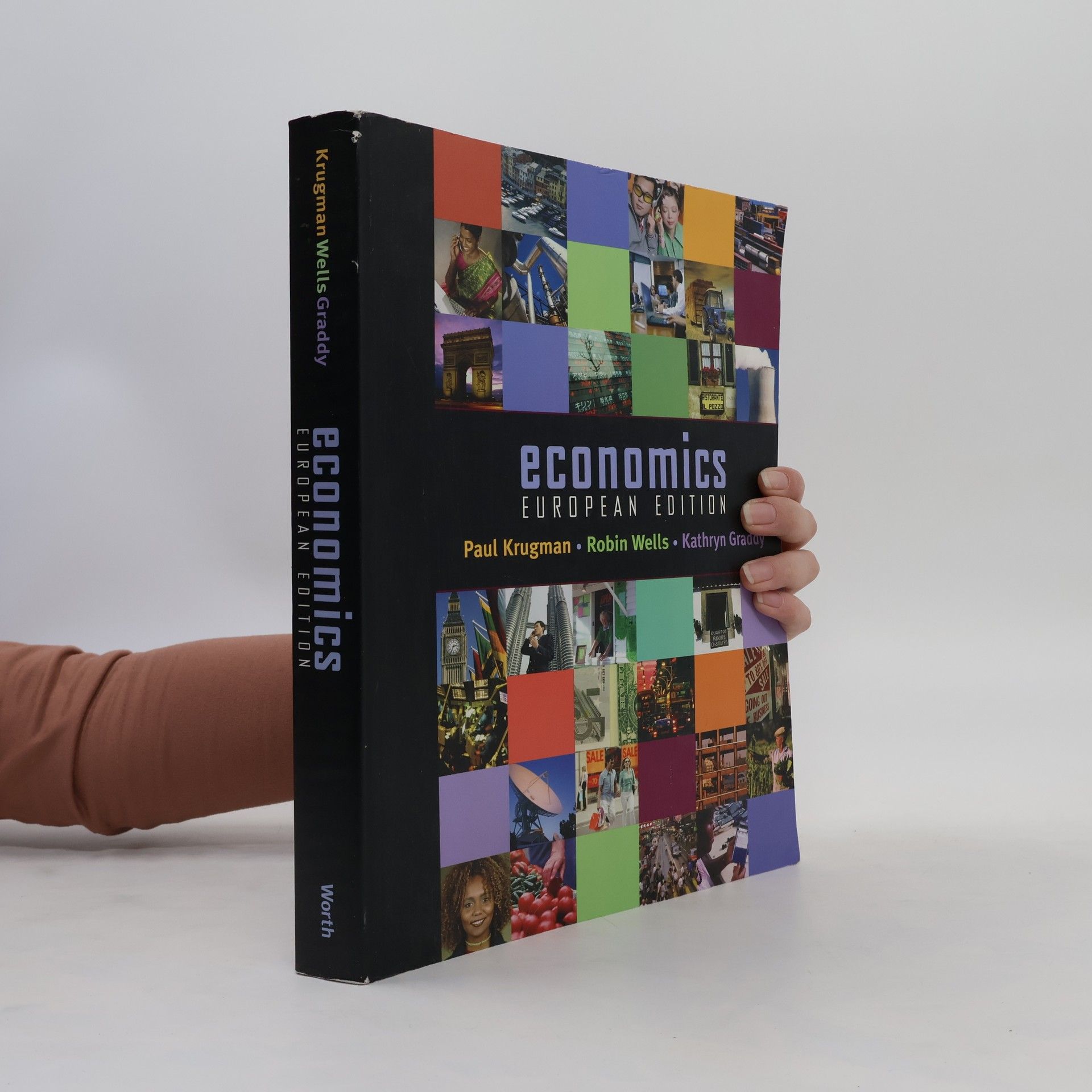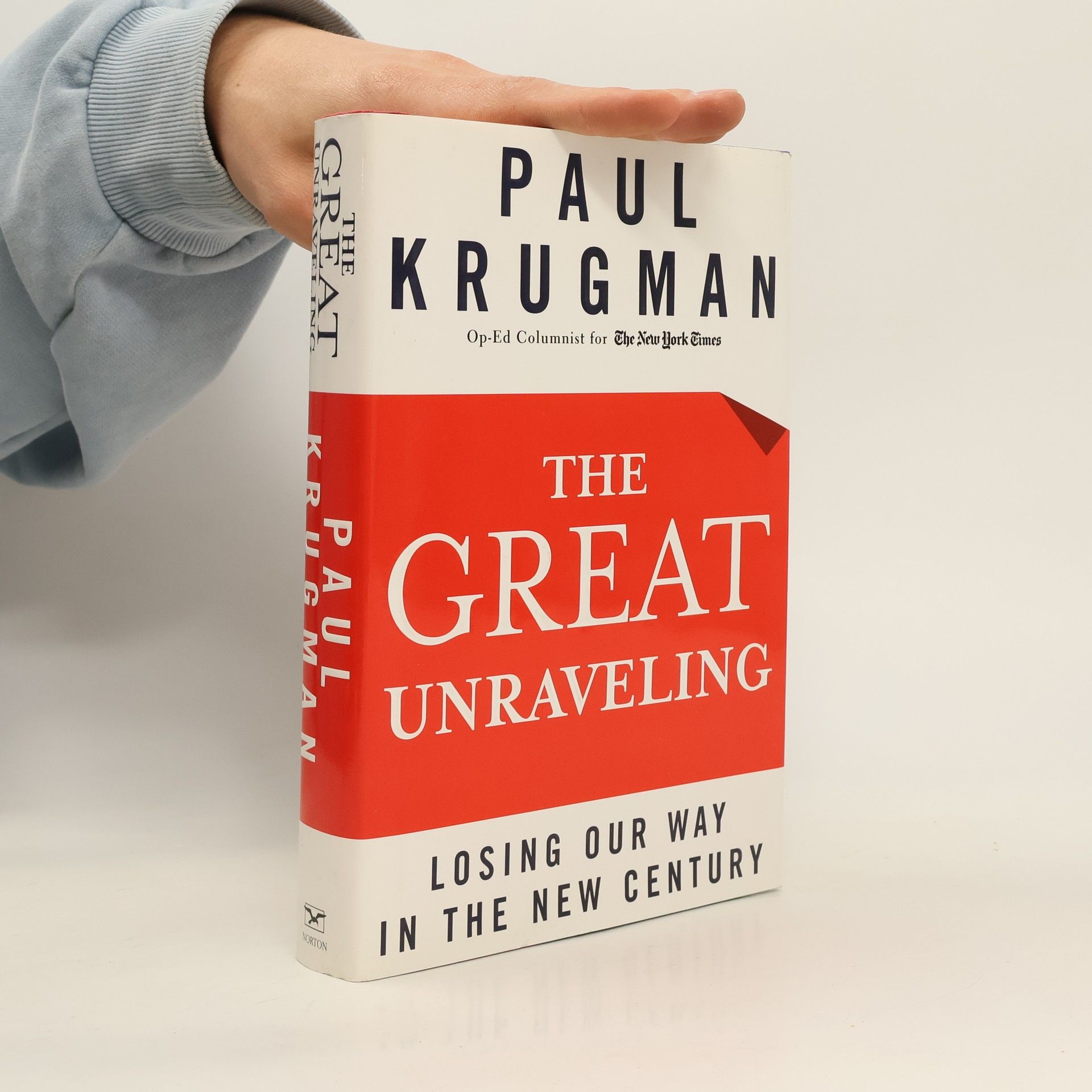Esta coleccion recoge todas aquellas obras escritas con la voluntad de superar los estrechos limites de la especializacion y del enfoque unilateral para ofrecer, desde una reflexion general e interdisciplinar, respuestas a los grandes desafios intelectuales de nuestro tiempo. La distinguen los nombres de John K. Galbraith, Noam Chomsky, Paul Krugman, Marvin Harris, Edward Luttwak, Amelia Valcarcel o Manuel Vazquez Montalban. Paul Krugman nos ofrece un penetrante analisis de la crisis que comenzo en Japon en el verano de 1997 y se extendio posteriormente a Rusia y America Latina, para explicarnos lo sucedido y mostrar que, al igual que sucedio en los anos treinta, la mayor amenaza a que debemos enfrentarnos son las ideas erroneas y las doctrinas caducadas que llenan nuestras mentes.
Paul R. Krugman Libros
Paul Krugman es un influyente economista e intelectual público cuyo trabajo profundiza en la economía internacional y la dinámica del comercio y la geografía. Posee una habilidad única para dilucidar teorías económicas complejas, haciéndolas accesibles a una amplia audiencia a través de su escritura clara y perspicaz. Krugman examina críticamente las fuerzas que dan forma a los mercados globales, centrándose a menudo en cuestiones de desigualdad económica y los desafíos inherentes a los sistemas económicos modernos. Sus análisis ofrecen una profunda comprensión de los principios económicos que impulsan la sociedad contemporánea.

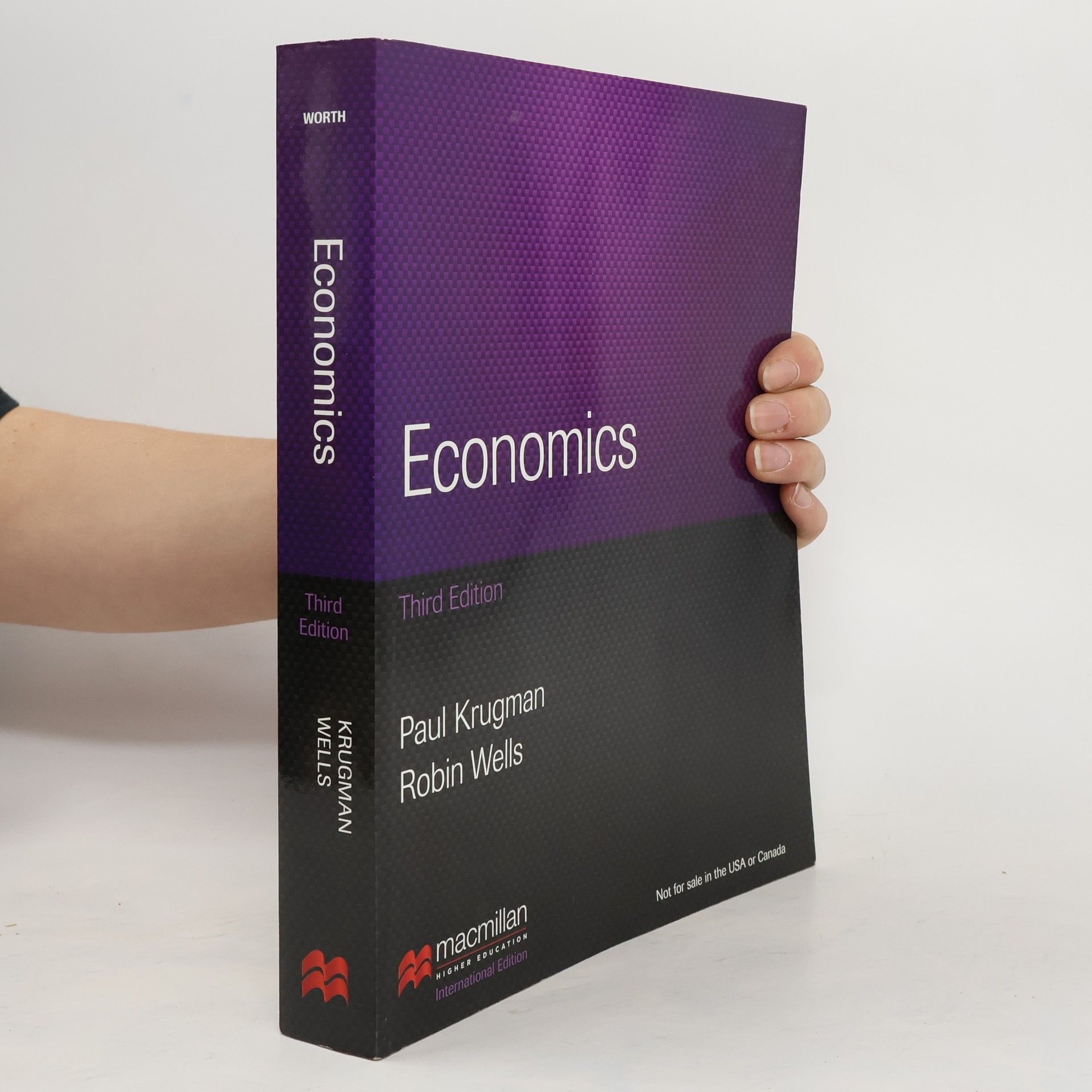
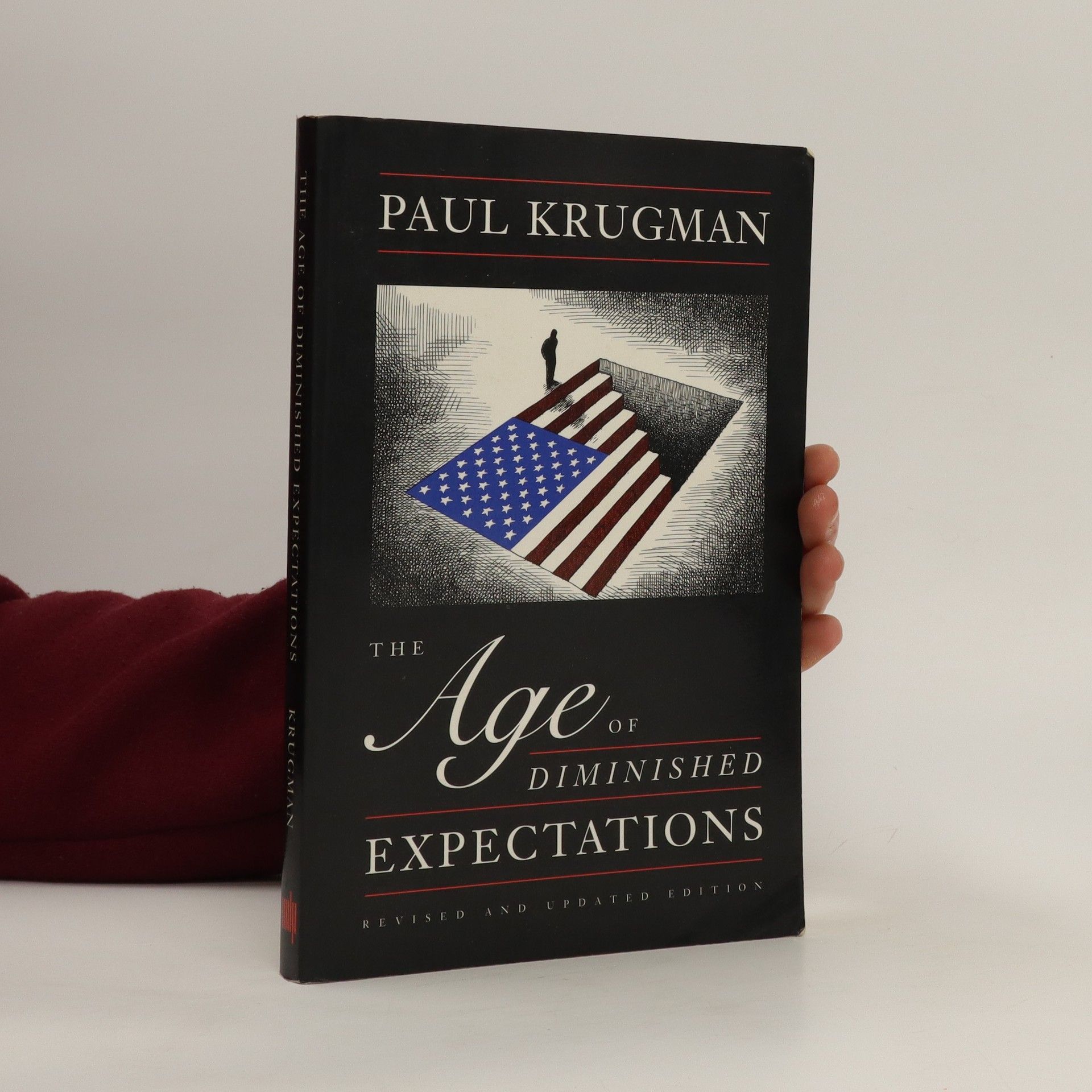
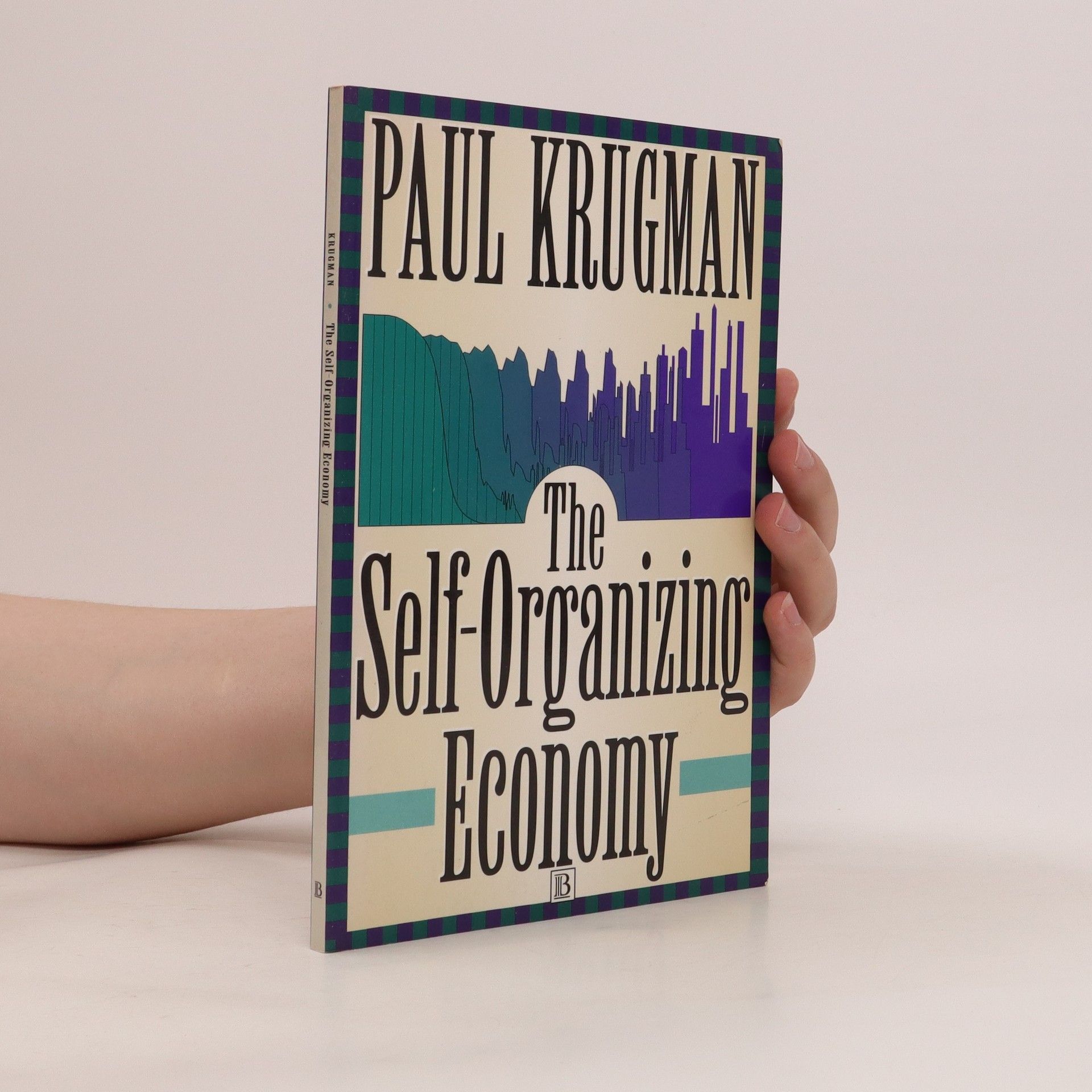



Vendiendo prosperidad
Sensatez e insensatez económica en una era de expectativas limitadas
- 337 páginas
- 12 horas de lectura
Publicada por primera vez en 1994, esta obra vuelve a cobrar relevancia por su crítica a las políticas de austeridad de los gobiernos conservadores. En él, Krugman somete a juicio este modelo del liberalismo así como para reivindicar la figura de Keynes, cuyas ideas siguen aún prevaleciendo.
Economía internacional
Teoría y política del comercio internacional
The Self-Organizing Economy In the last few years the concept of self-organizing systems―complex systems in which randomness and chaos seem spontaneously to evolve into unexpected order―has linked together researchers in many fields, from artificial intelligence to chemistry, from evolution to geology. Now leading economist Paul Krugman shows how principles that explain the growth of hurricanes and embryos can also explain the formation of cities and business cycles; how the same principles of “order from random growth” can explain the strangely simple rules that describe the sizes of earthquakes, meteorites, and metropolitan areas. Weaving together strands from many disciplines, from location theory to biology, The Self-Organizing Economy offers a surprising new view of how the economy structures itself in space and time.
Paul Krugman's essential guide to the economic landscape of the 1990s has been revised and updated to include a new introduction in which Krugman connects George Bush's fall from office to simmering dismay over a long-term economic slowdown. There is a new chapter on international finance that focuses primarily on European monetary affairs, and a new chapter on health care that examines why costs have exploded and explains how managed competition and alternative systems would work, and why it is so difficult to control rising health care costs. There are smaller additions throughout the rest of the book. These include: - a discussion of how people misunderstand the relationship between productivity and competitiveness; - the very minor industrial policy proposals that have been made thus far; - new data reflecting even larger gains for the wealthy than have been thought; - a prediction that Clinton's tax plan will have only a small impact; - a discussion of the junk bond market collapse; - and the startling productivity numbers for 1992. Discussions of unemployment and the trade deficit take into account that unemployment has risen, and there is a new section on how the Federal Reserve fumbled, as well as a new assessment of financial markets in light of the recession.
Economics
- 1200 páginas
- 42 horas de lectura
When it comes to explaining current economic conditions, there is no economist readers trust more than New York Times columnist and Nobel laureate Paul Krugman. Term after term, Krugman is earning that same level of trust in the classroom, with more and more instructors introducing students to the fundamental principles of economics via Krugman's signature storytelling style. The new Third Edition of Paul Krugman and Robin Wells's Economics is their most accomplished yet-extensively updated to offer new examples and stories, new case studies from the business world, and expert coverage of the ongoing financial crisis.
Economics: European Edition
- 1044 páginas
- 37 horas de lectura
Economics: European Edition is the ideal text for introductory economics, bringing together an international scope of real world examples and economic theory. The text is supported by a number of features to enhance student understanding as well as supplements to consolidate the learning process.
Peddling Prosperity
Economic Sense & Nonsense In An Age Of Diminished Expectations
- 180 páginas
- 7 horas de lectura
Newsweek hailed Paul Krugman as "a superstar among economists" and went on to praise Peddling Prosperity as "the best primer around on recent U.S. economic history." Others joined the chorus. This wonderfully received book finds him in top form, observing the years he's dubbed "the age of diminished expectations." The past twenty years have been an era of economic disappointment in the United States. They have also been a time of intense economic debate, as rival ideologies contend for policy influence. But strange things have happened to economic ideas on their way to power: they've been hijacked by policy entrepreneurs―economic snake-oil salesmen, right or left, who offer easy answers to hard problems. Supply-siders rose to power with Ronald Reagan and not only cured nothing but left behind a $3 trillion debt. Krugman finds an unhappy parallel in those who shape policy within the Clinton administration.
End this depression now!
- 272 páginas
- 10 horas de lectura
A call-to-arms from Nobel Prize?winning economist and best-selling author Paul Krugman. The Great Recession is more than four years old, and counting. Yet, as Paul Krugman points out in this powerful volley, "Nations rich in resources, talent, and knowledge, all the ingredients for prosperity and a decent standard of living for all, remain in a state of intense pain." How bad have things gotten? How did we get stuck in what now can only be called a depression? And above all, how do we free ourselves? Krugman pursues these questions with his characteristic lucidity and insight. He has a powerful message for anyone who has suffered over these past four years: a quick, strong recovery is just one step away, if our leaders can find the "intellectual clarity and political will" to end this depression now.
In this collection of Krugman's most influential columns and additional commentary, he chronicles how the boom economy unravelled and how exuberance gave way to pessimism. He tells the uncomfortable turth about how the US lost its way, and offers a road map for getting it back on track
